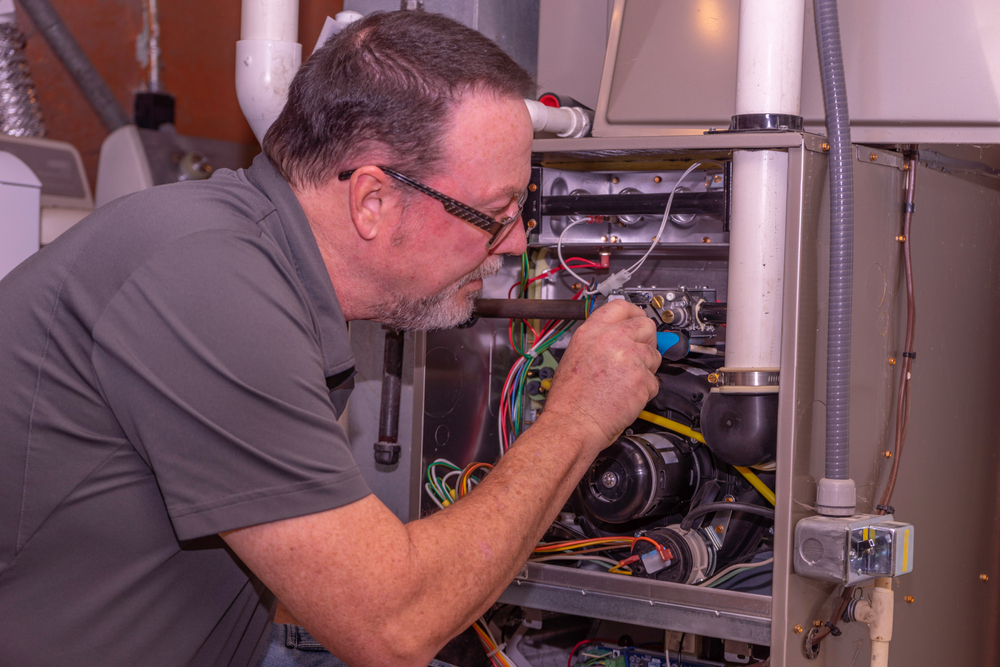Like most people, you probably don’t overthink your furnace until it stops working. At that point, it becomes the only thing on your mind! However, furnaces are a necessary part of life during the winter months, and making sure yours is as efficient as possible is essential. In this blog post, we will discuss the top 5 common factors that affect furnace efficiency. By understanding what these factors are, you can take steps to improve your furnace’s performance and save money on your energy bills!
How Furnace Efficiency does Affect
Furnace efficiency measures how well the furnace converts fuel into heat. The higher the efficiency, the less fuel the furnace will consume to produce the same amount of heat. Several factors can affect a furnace’s efficiency, including:
- The type of fuel being used
- The age and condition of the furnace
- The quality of the installation
- The level of maintenance
- The climate where the furnace is being used
Common Factors that Affect Furnace Efficiency
One of the most critical factors that affect furnace efficiency is the type of fuel being used. The most common fuels in furnaces are natural gas, propane, and oil. Of these three, natural gas is typically the most efficient. Propane and oil can also be quite efficient, but they tend to be more expensive than natural gas. If you’re using a propane or oil furnace, it must be serviced regularly to ensure it’s operating at peak efficiency. Let’s look closely at 5 Common Factors that Affect Furnace Efficiency.
Poor Insulation Levels
Proper insulation is key to maintaining comfortable indoor temperatures and reducing energy consumption. If heat escapes through poorly insulated walls, ceilings, and floors, your furnace has to work harder to maintain the desired temperature. This increased effort not only drives up energy costs but also shortens the lifespan of your furnace. Ensure your home is insulated correctly by checking for drafts and sealing any gaps or holes you find. You can also add insulation to your attic, crawlspace, or basement to improve energy efficiency.
Dirty Filters
One of the most common factors that affect furnace efficiency is dirty filters. When your furnace filter becomes clogged with dirt and dust, it restricts airflow and makes your furnace work harder to circulate air. As a result, it reduces efficiency and can lead to severe problems like overheating. To avoid these issues, check your filter monthly and replace it as needed.
Closed or Dirty Registers
Another common problem that can affect furnace efficiency is closed or dirty registers. A closed register will restrict airflow and make your furnace work harder to circulate air. Likewise, a dirty register will also reduce airflow and make your furnace less efficient. To keep your furnace running efficiently, check all your registers monthly and keep them clean and clear.
Lack of Maintenance
Your furnace is like any other mechanical device in your home; it needs regular maintenance to function correctly. An annual professional tune-up will help maintain optimal performance and extend the lifespan of your furnace. Not only that, but it can also improve safety by identifying potential hazards before they cause problems.
Leaky Ducts and Air Leaks
Leaky ducts and air leaks are among the most common causes of inefficiency in a furnace. If your home has leaky ductwork, it can waste a lot of heated or cooled air before reaching its intended destination. Likewise, money goes out the window if you have any cracks or holes in your home’s envelope (walls, doors, windows, etc.). So be sure to seal any leaks to improve your furnace’s efficiency.
Conclusion
Although many factors can affect furnace efficiency, keeping an eye on the five we’ve outlined can help ensure your system is running as efficiently as possible. Have you checked your furnace lately to see if it needs repairs or tune-ups? If not, now might be a good time to do so! Contact us today and let one of our experts team in Houston look at your system. We can help get it back up to speed in no time.


